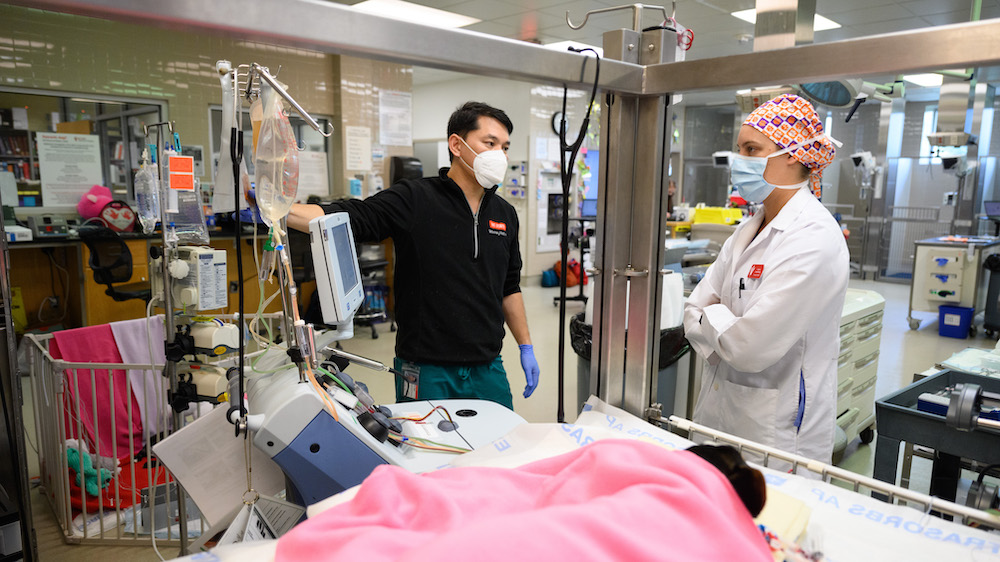NC State Veterinary Hospital Expands Dialysis, Other Lifesaving Services

Thanks to recent staff additions, the NC State Veterinary Hospital now offers a full array of extracorporeal services, including hemodialysis and therapeutic plasma exchange, lifesaving procedures that utilize advanced technologies to remove harmful substances from the body.
Extracorporeal therapies eliminate life-threatening toxins, such as in cases of drug overdoses, by filtering the blood. All extracorporeal services are available through the hospital’s emergency and critical care service.
The clinical team of veterinarians consists of the service’s director, Shelly Vaden, professor of internal medicine, and Yu Ueda, clinical assistant professor. The team also includes Allison Kendall, assistant clinical professor of small animal internal medicine, and the newest member, veterinary technician Rachel Laney. The service is in the process of adding a postgraduate fellow.
“Our service is the closest source of comprehensive extracorporeal care between Florida and Washington, D.C.,” Vaden says. “It’s an expensive service to operate, and one that isn’t necessarily expected everywhere.”
One thing that makes providing dialysis and related therapies harder to maintain is that it’s difficult to predict how often it will be used.
“The caseload varies,” Vaden says. “But we had six apheresis cases in one week recently.”

The therapies include hemodialysis, which treats severe kidney injury, and hemoperfusion, the rapid removal of a multitude of toxins and drug overdoses from the blood. One example of this when this may be used is when a pet somehow gets access to a prescription drug for humans and eats a bottle of pills, resulting in a life-threatening overdose.
Additionally, plasmapheresis is used to treat acute forms of immune-mediated diseases, such as hemolytic anemia, myasthenia gravis and pemphigus. Hepatic encephalopathy, which can occur in cases of severe liver disease, is another possible use for plasmapheresis.
Toxins build up in the blood that can travel to the brain and affect brain function. This service is the last line of defense in cases that have not responded to drug treatment.
Suzi Wharton appreciates NC State’s extracorporeal team. Her dog, Millie, a Belgian malinois, is a former therapy dog for children. Last December, Millie began to raise a fuss in the middle of the night, and Wharton knew something was wrong.
It turned out that antifreeze on a garage shelf had fallen and spilled, and Millie had ingested some of the sweet-tasting liquid. Ethylene glycol poisoning can be fatal to dogs.
Millie ended up at the NC State Veterinary Hospital, where she underwent dialysis.
“We didn’t hesitate for even a fraction of a second,” says Wharton, who lives in Goldsboro. “She’s our family. The vet we worked with was a sweetheart, and I knew she was in good hands. The service was well worth it.”
~Steve Volstad/NC State Veterinary Medicine
- Categories:


